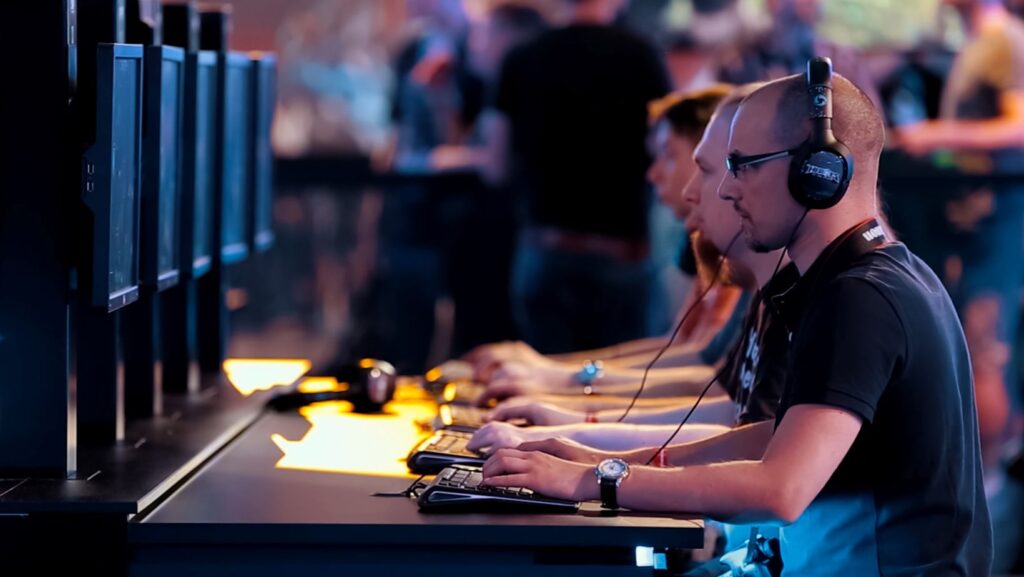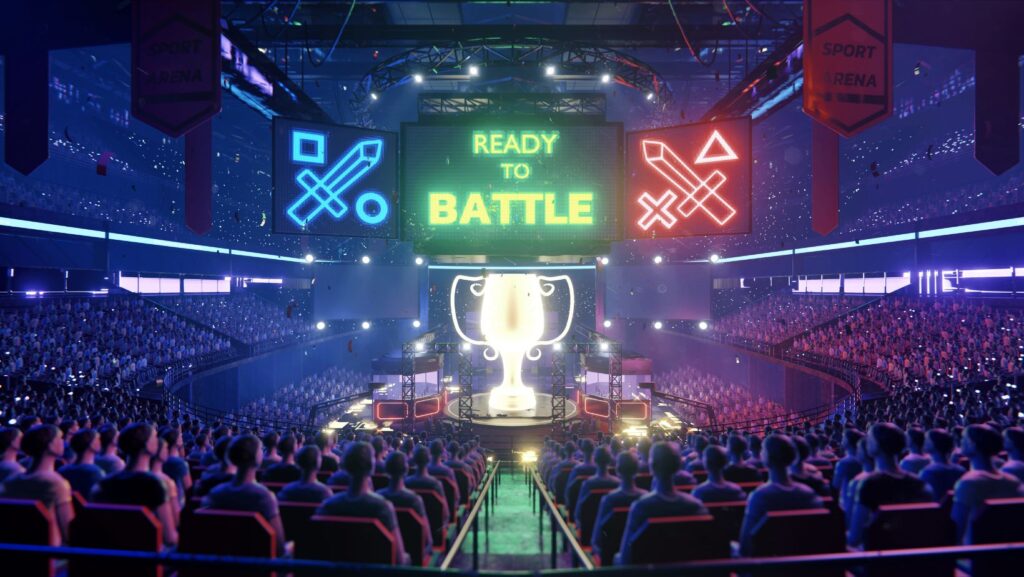 In recent years, eSports has skyrocketed from niche pastime to global phenomenon, captivating millions of fans worldwide. But what exactly does “eSports” mean? At its core, eSports, short for electronic sports, refers to competitive video gaming where individuals or teams face off in various game genres, from first-person shooters to strategy games. With professional leagues, massive tournaments, and substantial prize pools, eSports has established itself as a legitimate sporting industry. Players dedicate countless hours to mastering their skills, much like traditional athletes. The rise of live streaming platforms and social media has only fueled its growth, making eSports more accessible and engaging than ever before.
In recent years, eSports has skyrocketed from niche pastime to global phenomenon, captivating millions of fans worldwide. But what exactly does “eSports” mean? At its core, eSports, short for electronic sports, refers to competitive video gaming where individuals or teams face off in various game genres, from first-person shooters to strategy games. With professional leagues, massive tournaments, and substantial prize pools, eSports has established itself as a legitimate sporting industry. Players dedicate countless hours to mastering their skills, much like traditional athletes. The rise of live streaming platforms and social media has only fueled its growth, making eSports more accessible and engaging than ever before.
E Sports Meaning
What Are E-Sports?
E-sports refer to organized, multiplayer video game competitions. These events typically feature professional players, either individually or as teams, competing against one another. Games played in e-sports span various genres, including first-person shooters (FPS), real-time strategy (RTS), and multiplayer online battle arenas (MOBA). Examples include games like “Counter-Strike,” “StarCraft II,” and “League of Legends. Professional e-sports competitions often fill large arenas, attracting thousands of spectators and millions of online viewers. Participants train intensely, similar to athletes in traditional sports, to develop their skills and strategies. Live streaming platforms, such as Twitch and YouTube Gaming, make it easy for fans to watch live matches and follow their favorite teams or players.
The Evolution of Competitive Gaming
 The evolution of competitive gaming started in the early 1970s with events like the “Space Invaders Championship” and has significantly progressed since then. In the 1990s, games like “Street Fighter II” and “Quake” popularized organized gaming tournaments. The rise of the internet and the development of broadband connections in the early 2000s allowed online multiplayer gaming to flourish.This period saw the emergence of some of the first e-sports leagues and organizations, such as Major League Gaming (MLG) and the Electronic Sports League (ESL). The mid-2010s ushered in the most explosive growth, with some tournaments offering prizes in the millions of dollars. Major companies and sponsors started recognizing e-sports as a lucrative market, investing heavily in teams and events. As of today, e-sports have become a global industry with a dedicated fanbase, professional players, and institutional support. This rapid evolution has established e-sports as not just a form of entertainment but also a recognized sporting discipline.
The evolution of competitive gaming started in the early 1970s with events like the “Space Invaders Championship” and has significantly progressed since then. In the 1990s, games like “Street Fighter II” and “Quake” popularized organized gaming tournaments. The rise of the internet and the development of broadband connections in the early 2000s allowed online multiplayer gaming to flourish.This period saw the emergence of some of the first e-sports leagues and organizations, such as Major League Gaming (MLG) and the Electronic Sports League (ESL). The mid-2010s ushered in the most explosive growth, with some tournaments offering prizes in the millions of dollars. Major companies and sponsors started recognizing e-sports as a lucrative market, investing heavily in teams and events. As of today, e-sports have become a global industry with a dedicated fanbase, professional players, and institutional support. This rapid evolution has established e-sports as not just a form of entertainment but also a recognized sporting discipline.
The Cultural Impact of E-Sports
Influence on Youth and Society
 E-sports significantly shape youth culture, offering new avenues for social interaction and skill development. Teenagers and young adults engage in online communities, forming friendships and teams. These platforms foster collaboration, communication skills, and strategic thinking. According to a survey by the Entertainment Software Association, 70% of gamers aged 18-29 consider gaming an essential part of their identity. Educational institutions increasingly acknowledge the benefits of e-sports. Schools and universities establish e-sports programs, providing scholarships for talented players. In 2018, the National Association of Collegiate Esports (NACE) reported that over 100 U.S. colleges had varsity e-sports programs. E-sports also influence mental health awareness. Games offer an outlet for stress and a sense of accomplishment. Streamers and professional players often use their platforms to discuss mental health openly, reducing stigma and encouraging support.
E-sports significantly shape youth culture, offering new avenues for social interaction and skill development. Teenagers and young adults engage in online communities, forming friendships and teams. These platforms foster collaboration, communication skills, and strategic thinking. According to a survey by the Entertainment Software Association, 70% of gamers aged 18-29 consider gaming an essential part of their identity. Educational institutions increasingly acknowledge the benefits of e-sports. Schools and universities establish e-sports programs, providing scholarships for talented players. In 2018, the National Association of Collegiate Esports (NACE) reported that over 100 U.S. colleges had varsity e-sports programs. E-sports also influence mental health awareness. Games offer an outlet for stress and a sense of accomplishment. Streamers and professional players often use their platforms to discuss mental health openly, reducing stigma and encouraging support.
Integration with Mainstream Sports
Mainstream sports organizations recognize the growing influence of e-sports, leading to integration efforts. Professional sports franchises such as the NBA, NHL, and NFL have established e-sports teams. The NBA 2K League features teams affiliated with NBA teams, bridging the gap between traditional sports and e-sports. Broadcasting networks like ESPN and Fox Sports air e-sports tournaments, providing mainstream visibility. In 2016, ESPN launched a dedicated e-sports section on its website, validating e-sports’ legitimacy alongside traditional sports coverage. Athletes from conventional sports increasingly participate in e-sports events. Lionel Messi, for example, invests in e-sports teams. This crossover enhances e-sports’ credibility and appeals to a broader audience. Endorsements and sponsorships from well-known brands further integrate e-sports into the mainstream. Companies like Coca-Cola, Intel, and Red Bull sponsor e-sports events, ensuring substantial investment and marketing opportunities.



